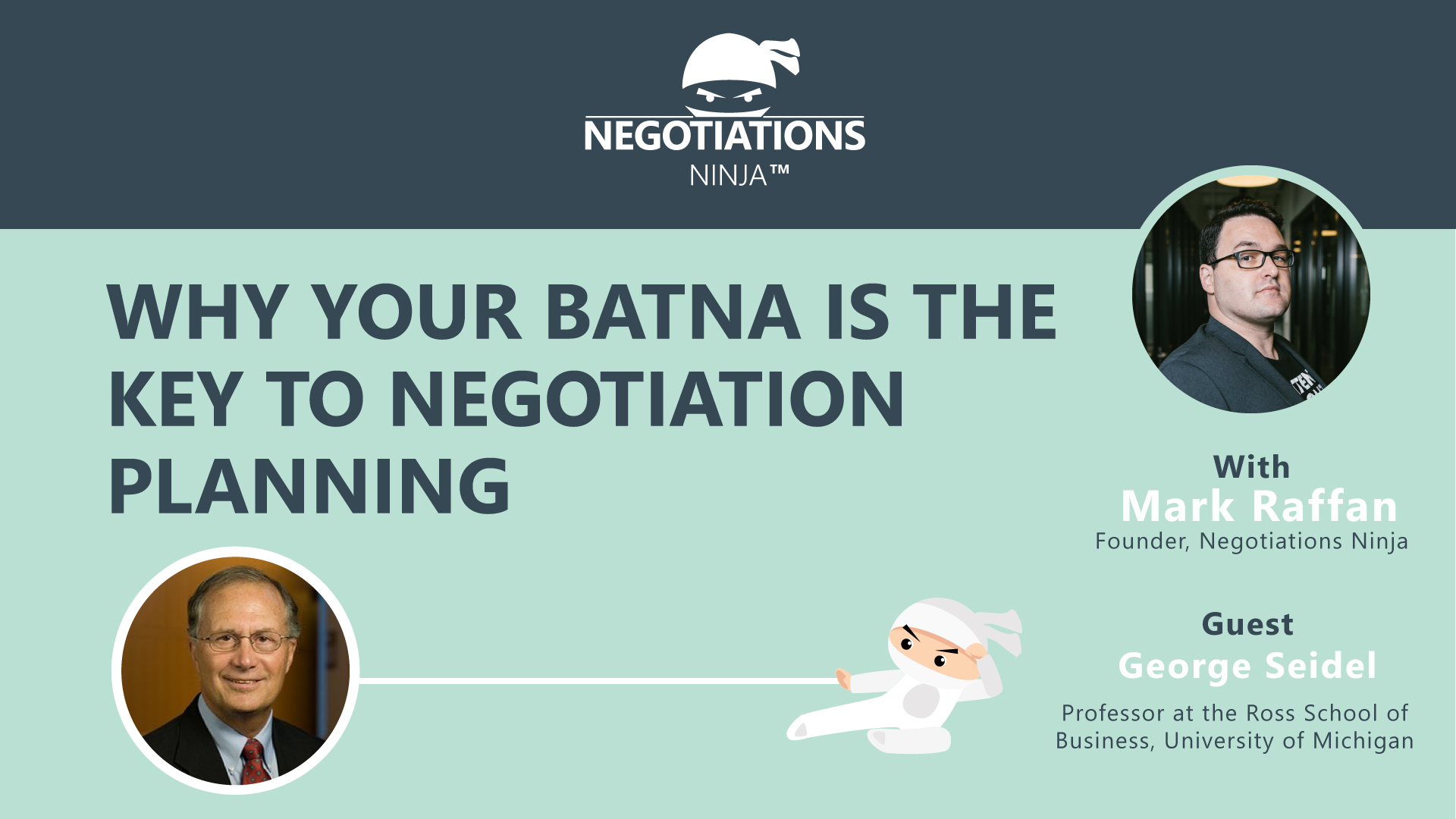George Siedel—a Professor at the University of Michigan—wrote a great book called, “Negotiating for Success: Essential Strategies and Skills,” in which he shares the importance of planning. He believes so strongly in planning that he gives away numerous negotiation planning tools for free. In this episode of Negotiations Ninja, we cover planning in negotiation, the 4th and 5th key numbers for financial consideration, and how to understand and consider life goals when it comes to dispute resolution. George shares a shocking story at the end of this episode that you can’t miss.
Outline of This Episode
- [2:05] Learn more about Professor George Siedel
- [3:55] How should we plan for a negotiation?
- [8:17] Is negotiation required in all circumstances?
- [10:47] The five key numbers in a financial negotiation
- [13:49] Why you need to prioritize your BATNA
- [16:25] Is overconfidence detrimental to a negotiation?
- [18:49] Considering your life goals
How should we plan for a negotiation?
It’s amazing how often people plan for a negotiation last minute. That’s why George created a negotiation planner. You go through a checklist to set your goals, consider alternatives, look at concession bargaining, and focus on key numbers.
Most people’s strategy starts with gathering information from the other side. But you need benchmarks to evaluate the information you receive from the other side. His planner encourages people to set those benchmarks. George offers numerous other free tools that you can use to prepare for a negotiation (check them out in the resources below).
Is a negotiation required in all circumstances?
People often negotiate with a specific goal in mind. One of the tools you can use to determine if a negotiation is necessary is your BATNA (your best alternative to a negotiated agreement). If you have better alternatives, why worry about a negotiation? It will tell you that you don’t have to be a martyr. It even allows you to back out of a negotiation at any time.
The five key numbers in a financial negotiation
George was on a Safari in South Africa, where they talked about the “Big Five” dangerous animals. In a negotiation, the big five numbers are:
- What’s your BATNA? What are your alternatives? Are they strong or weak? If you’re buying a car, what are all of your options?
- What is your reservation price? What’s the most that you’re willing to pay for a car?
- What’s your target price? What is reasonable for that car?
- What is your stretch goal? The most successful negotiators have the largest stretch goals.
- What is your zone of potential agreement (ZOPA)? If you know your own reservation price and can identify that of the other side, then you have a zone in which the deal can take place.
If you’re able to determine that there is no ZOPA, walk away because you’re wasting your time.
Why you need to prioritize your BATNA
Your BATNA gives you power in a negotiation. Your BATNA also determines the strategy you’ll use during a negotiation. You have to identify the other side’s BATNA and then try and weaken it while improving your own BATNA.
What if there isn’t a BATNA? What if you have to negotiate with a particular counterparty? George doesn’t believe that’s ever the case. Your BATNA might be awful, but it always exists. But if the BATNA is awful, you’re in a weak negotiating position. It might be better to discontinue making a product than only having the option of one supplier for a certain component.
Resources & People Mentioned
Connect with George Siedel
- Connect on LinkedIn
Connect With Mark
- Follow Negotiations Ninja on Twitter: @NegotiationPod
- Connect with Mark on LinkedIn
- Follow Negotiations Ninja on LinkedIn
- Connect on Instagram: @NegotiationPod




